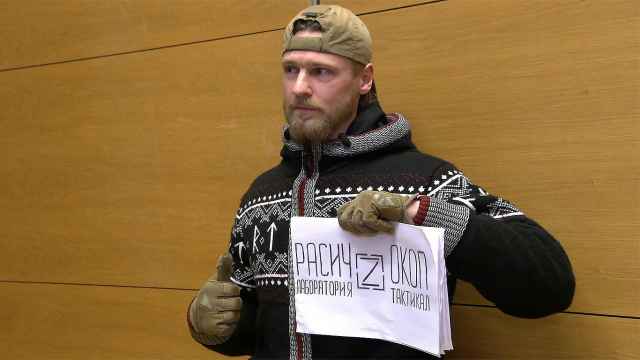LONDON — Britain's long-delayed inquest into the death by radioactive poisoning of former FSB officer Alexander Litvinenko could be abandoned after the coroner partly upheld a British government request to withhold crucial evidence.
Robert Owen, a senior judge acting as coroner, said that keeping some of the evidence secret would make it impossible to hold a "full, fair and fearless inquiry" into the death of the vocal critic of President Vladimir Putin.
Litvinenko, 43, died after drinking polonium-210, a radioactive isotope, that had been slipped into his tea at a London hotel in 2006. In a deathbed statement, he accused Putin of ordering his murder, a claim Russia has denied.
In a written ruling Friday, the coroner partially upheld a request by British Foreign Secretary William Hague to withhold evidence relating to the possible involvement of the Russian state in Litvinenko's death and whether it could have been prevented.
The coroner also agreed to keep secret information that could undermine trust in the British government or "cause real harm to the UK's international relations."
Without being able to assess all the evidence in open hearings, Owen said he would be unable to "discharge my duty to undertake a full, fair and fearless inquiry into the circumstances."
Those involved have two weeks to respond and a further hearing is due on June 11.
Litvinenko's widow, Maria, said she was "utterly dismayed" by the ruling, which she described as a political fix to help Russia and Britain rebuild their relations.
Related articles:
A Message from The Moscow Times:
Dear readers,
We are facing unprecedented challenges. Russia's Prosecutor General's Office has designated The Moscow Times as an "undesirable" organization, criminalizing our work and putting our staff at risk of prosecution. This follows our earlier unjust labeling as a "foreign agent."
These actions are direct attempts to silence independent journalism in Russia. The authorities claim our work "discredits the decisions of the Russian leadership." We see things differently: we strive to provide accurate, unbiased reporting on Russia.
We, the journalists of The Moscow Times, refuse to be silenced. But to continue our work, we need your help.
Your support, no matter how small, makes a world of difference. If you can, please support us monthly starting from just $2. It's quick to set up, and every contribution makes a significant impact.
By supporting The Moscow Times, you're defending open, independent journalism in the face of repression. Thank you for standing with us.
Remind me later.





